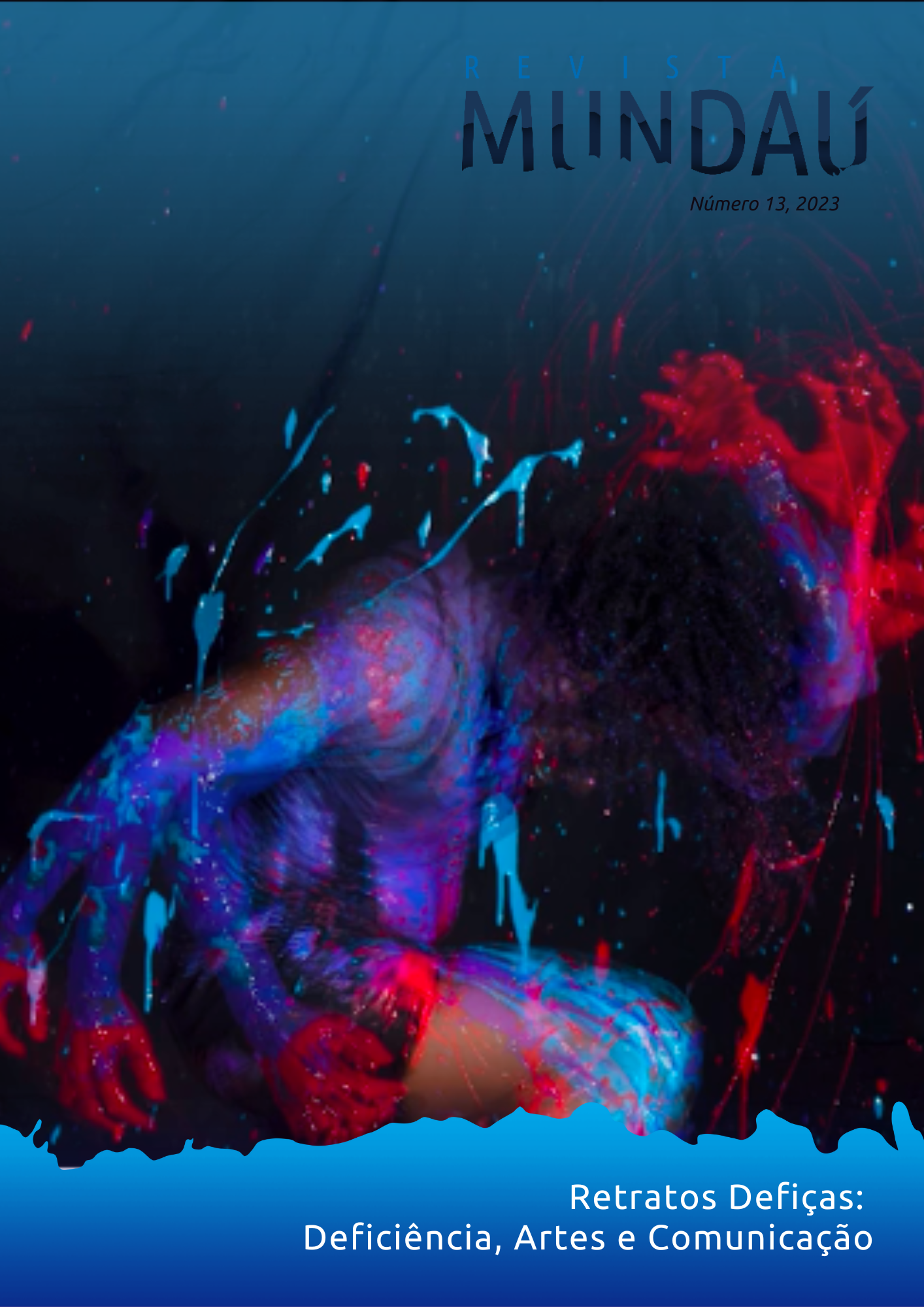Da identidade interna/externa à opressão/libertação coletiva: navegando na posicionalidade na pesquisa sobre deficiência
DOI:
https://doi.org/10.28998/rm.2023.13.15312Keywords:
Positionality, Intersectionality, Disability Studies, Reflexive ethnography, Experiential knowledgeAbstract
A primazia do conhecimento experimental é um fundamento indiscutível do ativismo e da pesquisa sobre deficiência. A política de identidade e a interseccionalidade chamam a atenção para a gama limitada de vozes, interesses e experiências representadas na primeira onda de estudos sociais da deficiência. Enquanto isso, uma segunda onda emergente exige uma mudança de foco da identidade de pessoas com deficiência para os sistemas interconectados de dominação e exploração que moldam nossa experiência corporificada. Por meio de um questionamento criticamente reflexivo da posicionalidade amorfa da autora, como cuidadora neurodivergente, mas não sendo uma pessoa com deficiência, que se tornou profissional de saúde e pesquisadora da deficiência, este artigo explora a relação entre identidade com a deficiência, participação na cultura da deficiência e conhecimento experiencial. Uma compreensão relacional da deficiência abre espaço para considerar a legitimidade e o valor das identidades e perspectivas adjacentes à deficiência. Consideram-se as limitações das abordagens metodológicas participativas e discute-se o potencial emancipatório da metodologia etnográfica reflexiva.
Downloads
References
BARNES, Colin. An ethical agenda in disability research: Rhetoric or reality? In: MERTENS, Donna M.; GINSBERG, Pauline E. The handbook of social research ethics. Thousand Oaks: Sage, 2009. p. 458–473.
BRUEGGEMANN, Brenda. Think-between: a deaf studies commonplace book. In: BAUMAN, H-Dirksen L. Open your eyes: Deaf studies talking. Minneapolis: University of Minnesota Press, 2008. p. 35–41.
CHARLTON, James. Nothing about us without us: disability oppression and empowerment. Berkely: University of California Press, 2000.
COMBAHEE RIVER COLLECTIVE. The Combahee River Collective statement. In: TAYLOR, Keeanga-Yamahtta (Ed.). How we get free: Black feminism and the Combahee River Collective. Chicago: Haymarket Books, 2017. p. 15–27.
ELLIS, Carolyn; BOCHNER, Arthur P. Autoethnography, personal narrative, reflexivity: Researcher as subject. In: DENZIN, Norman K.; LINCOLN, Yvonna S. Collecting and interpreting qualitative materials. Thousand Oaks: Sage, 2003. p. 199–258.
GUILLEMIN, Marylis & GILLAM, Lynn. Ethics, reflexivity and ethically important moments in research. Qualitative Inquiry, v. 10, n. 2, p. 261–280, 2004. 10.1177/1077800403262360
HARDING, Sandra. Strong objectivity and socially situated knowledges. In: HARDING, Sandra. Whose science? Whose knowledge?: Thinking from women's lives. Ithaca: Cornell University Press, 1991. p. 138–163.
HUGHES, Bill; McKIE, Linda; HOPKINS, Debra; WATSON, Nick. Love’s labours lost? Feminism, the disabled people’s movement and an ethic of care. Sociology, v. 39, n. 2, p. 259–275, 2009. 10.1177/0038038505050538
KAFER, Alison. Feminist, queer, crip. Bloomington: Indiana University Press, 2013.
KATZMAN, Erika. Embodied reflexivity: Knowledge and the body in professional practice. In: GREEN, Bill; HOPWOOD, Nick. The body in professional practice, learning and education. Dordrecht: Springer, 2015. p. 157–172.
KATZMAN, Erika. The work of self-managing attendant services: a reflexive ethnographic study. [Unpublished doctoral dissertation] — London: The University of Western Ontario, 2018.
KATZMAN, Erika; KINSELLA, Elizabeth Anne. ‘It’s like having another job’: the invisible work of self-managing attendant services. Disability & Society, v. 33, n. 9, p. 1436–1459, 2018. 10.1080/09687599.2018.1497949
KATZMAN, Erika; KINSELLA, Elizabeth Anne; POLZER, Jessica. ‘Everything is down to the minute’: clock time, crip time and the relational work of self-managing attendant services. Disability & Society, v. 35, n. 4, p. 517–541, 2019. 10.1080/09687599.2019.1649126
KELLY, Christine. Building bridges with accessible care: disability studies, feminist care scholarship, and beyond. Hypatia, v. 28, n. 4, p. 784–800, 2013.
LATHER, Patti. Getting lost: feminist efforts toward a double(d) science. Albany: State University of New York Press, 2007.
LENNIE, June; HATCHER, Caroline; MORGAN, Wendy. Feminist discourses of (dis)empowerment in an action research project involving rural women and communication technologies. Action Research, v. 1, n. 1, p. 57–80, 2003. 10.1177/14767503030011005
LEWIS, Talila A. Working definition of ableism. January 2022 update. January 1, 2022. Available at: https://www.talilalewis.com/blog. Accessed on: April 13, 2023.
LEWIS, Talila A. Longmore lecture: context, clarity and grounding. March 5, 2019. Available at: https://www.talilalewis.com/blog/longmore-lecture-context-clarity-grounding. Accessed on: June 30, 2023.
LINTON, Simi. Claiming disability: knowledge and identity. New York: New York University Press, 1998.
LORDE, Audre. Sister outsider. Berkeley: Crossing Press, 2007 [1984].
McCABE, Janet L.; HOLMES, Dave. Reflexivity, critical qualitative research and emancipation: a Foucauldian perspective. Journal of Advanced Nursing, v. 65, n. 7, p. 1518–1526, 2009.
MILES, Angel L.; NISHIDA, Akemi; FORBER-PRATT, Anjali J. An open letter to White disability studies and ableist institutions of higher education. Disability Studies Quarterly, v. 37, n. 3, 2017.
NISHIDA, Akemi. Affecting neoliberal public health care: interdependent relationality between disabled care recipients and their care providers. [Unpublished doctoral dissertation] — New York: The City University of New York, 2016.
O’BYRNE, Patrick. The advantages and disadvantages of mixing methods: an analysis of combining traditional and autoethnographic approaches. Qualitative Health Research, v. 17, n. 10, p. 1381–1391, 2007.
PIEPZNA-SAMARASINHA, Leah Lakshmi. Care work: dreaming disability justice. Vancouver: Arsenal Pulp Press, 2018.
RICHARDSON, Laurel. Writing: a method of inquiry. In: DENZIN, Norman K.; LINCOLN, Yvonna S. Handbook of qualitative research. Thousand Oaks: Sage, 1994. p. 516–529.
SHAKESPEARE, Tom. Disability rights and wrongs. New York: Routledge, 2006.
SINS INVALID. Skin, tooth and bone: the basis of movement is our people. 2 ed. Berkeley: Sins Invalid, 2019.
STONE, Emma; PRIESTLEY, Mark. Parasites, pawns and partners: disability research and the role of nondisabled researchers. British Journal of Sociology, v. 47, n. 4, p. 699–716, 1996. 10.2307/591081
VORONKA, Jijian. The politics of ‘people with lived experience’: experiential authority and the risks of strategic essentialism. Philosophy, Psychiatry, & Psychology, v. 23, n. 3–4, p. 189–201, 2016. 10.1353/ppp.2016.0017
WEDGEWOOD, Nikki; SMITH, Louisa; SHUTTLEWORTH, Russel. ‘I employ a crew that can do life with me’: a young woman’s creative self- management of support workers. In: THOMAS, Gareth M.; SAKELLARIOU, Dikaios. Disability, Normalcy and the Everyday. London: Routledge, 2018. p. 123–141.
YOSHIDA, Karen; WILLI, Vic; PARKER, Ian; LOCKER, David. The emergence of self-managed attendant services in Ontario: direct funding pilot project – an independent living model for Canadians requiring attendant services. In: KRONENFELD, Jennie Jacobs (Ed.). Chronic Care, Health Care Systems and Services Integration. Research in the Sociology of Health Care, Volume 22. Bingley: Emerald Group Publishing Limited, 2004. p. 177–204. 10.1016/S0275-4959(04)22010-52004








